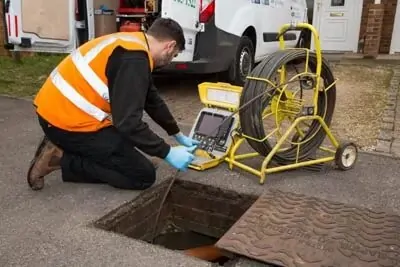What Is a Good Credit Score to Get a Mortgage in the UK?
Wondering what credit score you need for a mortgage in the UK? Learn what’s considered a good credit score and how to improve your chances of approval.

Understanding Credit Scores and Mortgages in the UK
If you're preparing to buy your first home one of the most important things you’ll need is a good credit score . But what credit score is “good” enough to get a mortgage in the UK?
While mortgage lenders consider many factors your credit score plays a major role in whether your application is approved and what interest rates you’re offered. In this guide we’ll break down what’s considered a good credit score how different agencies assess it and what you can do to boost yours.

What Is a Credit Score?
A credit score is a three-digit number that reflects your financial behaviour—how reliably you’ve borrowed and repaid money in the past. Lenders use it to assess your creditworthiness and decide whether to offer you a mortgage.
In the UK your score may differ depending on which credit reference agency (CRA) is used:
Agency | Score Range | Good Score |
|---|---|---|
Experian | 0 – 999 | 881 – 960 |
Equifax | 0 – 1 000 | 531 – 670 |
TransUnion | 0 – 710 | 604 – 627 |
Each lender may interpret scores differently and many use their own internal rating systems too.
What Is a Good Credit Score for a Mortgage in the UK?
There’s no “one-size-fits-all” score that guarantees mortgage approval but in general:
A good credit score improves your chances of approval.
A fair score may still get you approved but possibly at a higher interest rate or with a smaller choice of lenders.
A poor credit score might limit your options or require a larger deposit.
In general lenders prefer applicants with:
No missed payments or defaults in recent years
A consistent credit history
Low levels of existing debt
Electoral roll registration at current address
How Your Credit Score Affects Your Mortgage Application
Your credit score can influence:
 Whether you’re approved or declined for a mortgage
Whether you’re approved or declined for a mortgage
 How much you can borrow
How much you can borrow
 What interest rate you’re offered
What interest rate you’re offered
 Whether you’ll need a larger deposit
Whether you’ll need a larger deposit
For example someone with an excellent score may secure a mortgage with just a 5–10% deposit while someone with a lower score may need to provide 15–25% to reduce the lender’s risk.
Can You Get a Mortgage with a Low Credit Score?
Yes but it may be more difficult. Some lenders offer bad credit mortgages but:
Interest rates are usually higher
You may need a larger deposit (15–30%)
You’ll face stricter affordability checks
Fewer products will be available
If your score is low you may want to work on improving it before applying for a mortgage.
Top Tips to Improve Your Credit Score Before Applying
 Register to vote at your current address (Electoral Roll)
Register to vote at your current address (Electoral Roll)
 Pay bills on time – even small mobile bills count
Pay bills on time – even small mobile bills count
 Keep credit utilisation low (use less than 30% of your credit limit)
Keep credit utilisation low (use less than 30% of your credit limit)
 Don’t apply for too much credit in a short time
Don’t apply for too much credit in a short time
 Check for errors on your credit report and fix any inaccuracies
Check for errors on your credit report and fix any inaccuracies
 Keep old credit accounts open if in good standing to build your credit history
Keep old credit accounts open if in good standing to build your credit history
How Long Before Applying Should You Check Your Credit Score?
Ideally check your credit report at least 6 months before applying for a mortgage. This gives you time to correct any issues improve your score and make your finances look as strong as possible to lenders.
You can check your score for free with:
Use Our Mortgage Calculator to Estimate Affordability
While your credit score affects your mortgage options your income and expenses determine how much you can afford to borrow.
Use the WiseNest Mortgage Affordability Calculator to:
Estimate how much you can borrow
See how your deposit size affects monthly payments
Understand what lenders are likely to offer
Final Thoughts: Aim for a Strong Credit Profile
A good credit score in the UK makes it easier to get approved for a mortgage secure better interest rates and access a wider range of lenders. While there's no universal "perfect score" aiming for the “good” or “excellent” range on major credit reference agencies will put you in a strong position.
Whether you're just starting to build credit or recovering from past issues consistent responsible financial behaviour is the best way forward.
Editorial Standards & Expertise

WiseNest Editorial Team
Our expert editorial team consists of seasoned technology professionals, business strategists, and digital transformation specialists with over 15 years of combined experience in helping businesses navigate the digital landscape.
Join 10,000+ Smart
First-Time Buyers
Get expert homebuying guidance, AI-powered document analysis, and step-by-step support for your first property purchase.



Growing community
Already have an account? Sign in here
Related Articles
Continue exploring our insights and tips
![What Is Indemnity Insurance and When Might You Need It? [2025 UK Buyer’s Guide]](https://a.storyblok.com/f/335762/2560x1707/d026575128/what-is-indemnity-insurance-scaled.jpg)
What Is Indemnity Insurance and When Might You Need It? [2025 UK Buyer’s Guide]
Buying a home in the UK? Discover what indemnity insurance is, when it’s needed, typical costs, and how it protects buyers and lenders from legal risks in property transactions.
![What Surveyors Don’t Check: Common Misunderstandings Every UK Homebuyer Should Know [2025 Guide]](https://a.storyblok.com/f/335762/352x240/c7bfdabdfb/survey-female-352x240-jpg.webp)
What Surveyors Don’t Check: Common Misunderstandings Every UK Homebuyer Should Know [2025 Guide]
Thinking of getting a house survey? Learn what surveyors don’t check, the most common misunderstandings, and what extra inspections UK homebuyers may need in 2025.

Should You Get a Drainage Survey When Buying a Home?
Thinking of buying a house? Learn why a drainage survey can save UK buyers thousands in repairs. Discover costs, benefits, red flags, and whether it’s worth it in 2025.